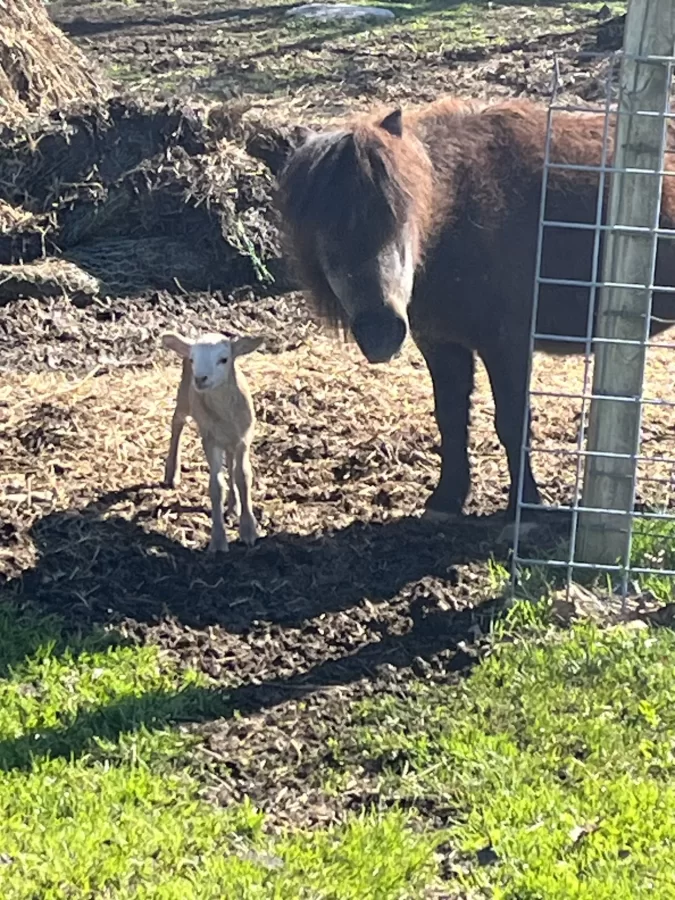A Human Voice that Speaks to Local Issues
In the past few blog posts, I shared Bates students’ experiences participating in various Community-Engaged Learning (CEL) and Community-Engaged Research (CER) projects. Today’s blog post is about a pivotal moment in a recent course, “Narrating (Agri)cultures: Ecologies of Livelihood, Care and Reciprocity,” taught this past January-April by professor Christine Martinez (Environmental Studies).
In the course, students were invited to reflect on critical issues of agriculture and environmental justice. They examined how devaluing the knowledge of small-scale farmers, indigenous peoples, and minoritized communities has historically supported the spread of colonial capitalism. They also learned how this devaluing is being contested today. Through the study of art, literature, and scholarship produced by these communities and their allies, students learned how the stories and ways of storytelling of those who work the land can reorient definitions and agendas of “environment,” climate action, and “resilience.”
One small but important moment in the course was when community partner Kathy Shaw came to class to share her experiences and insights with students. During her visit, Kathy presented her experience as a farmer and engaged students in a lively Q&A session. Students’ questions were mainly geared toward issues relating to land access and the realities faced by small-scale farmers in the Lewiston/Auburn community.
As Professor Martinez noted, “Shaw’s visit provided something all the texts and films could not: a human voice that could speak to local issues. ”
Students found Kathy’s visit informative, inspiring, and mind-opening.
“I felt particularly inspired by Kathy Shaw’s visit because she is living the life I want to lead. It felt rewarding to have her visit at the end of our class because she is a living demonstration of the concepts and possibilities for farmers and farming that we have learned about the entire semester,” one student shared.
Another student said, “Kathy Shaw is my new role model. I loved hearing from her, and that class discussion reinvigorated my passion for agriculture and community-based work. It was a beautiful and inspiring pick-me-up at the end of a hard semester.”
“One of the most memorable and meaningful classes we had was our discussion with Kathy Shaw,” another student reflected. “I feel it is incredibly important to hear the point of view of a farmer in our community, to hear the successes and the struggles of a local grower. I want to learn more about how federal and local policies, such as Auburn zoning, affect farmers’ livelihoods.”
Professor Martinez summed up the value of Kathy’s visit: “Kathy Shaw’s visit was a pivotal moment for our class. Her firsthand insights into the challenges and rewards of farming in our local community brought a level of understanding and empathy that theoretical discussions alone cannot achieve. It was an invaluable experience for the students to connect directly with someone who embodies the agricultural practices and issues we have been studying.”
Clearly, a seemingly small moment can have an outsized impact on student learning. Students who are interested in taking the Narrating (Agri)cultures course in the fall can register on Garnet Gateway.
